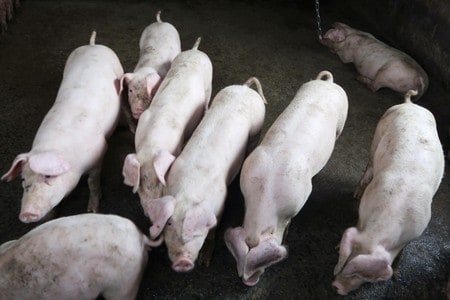BEIJING (Reuters) – China has launched a campaign to crack down on illegal hog slaughtering, and build more large-scale slaughterhouses, to control the spread of deadly African swine fever, the country’s agriculture ministry said on Tuesday.
The campaign will last from December to May next year, highlighting Beijing’s challenge in containing the highly contagious disease that threatens the world’s largest pig herd.
Illegal slaughtering and actions such as injecting water and other materials into pigs to increase weight have emerged in some areas recently, after a government ban on live hog transport sent prices soaring in major consumption areas, the Ministry of Agriculture and Rural Affairs said in a statement on its website.
Such activities have severely disrupted the hog slaughtering sector, and further increased the risks of spreading African swine fever, the ministry said.
Beijing will strengthen inspections of pig slaughterhouses and severely punish those operating without government permit, according to the ministry statement.
It will also build more large-scale hog slaughterhouses and increase the number of pigs butchered there by one percent during the next six months, the statement said, a move that will encourage consolidation of the sector, according to analysts.
“(The move) is also to regulate the slaughtering industry. Small slaughterhouses with lower butchering capacity will be closed, and for the big ones, it is good news,” said Yao Guiling, an analyst with consultancy China-America Commodity Data Analytics.
Beijing has banned transport of live pigs from regions with African swine fever outbreaks and neighboring provinces, following a series of cases of the deadly virus. Farmers in the infected regions as a result can only send their pigs to nearby slaughterhouses, which are in short supply in some areas.
The government has already urged major pig producers to diversify into slaughtering and increase processing capacity closer to their farms to reduce the need for transporting live animals.
China has reported some 90 cases of the deadly virus across the nation since early August.
(Reporting by Hallie Gu and Tom Daly; Editing by Tom Hogue)


